What are Continuing Education Units (CEUs) and why do you need them?
A Continuing Education Unit (CEU), also known as Continuing Education Credit (CEC), is a vital measure in ongoing education programs, helping professionals maintain their licenses. Staying ahead of cybercriminals requires continuous learning in this ever-evolving industry. CEUs are mandatory to keep certifications current and maintain professional status.
At Intellectual Point, we take pride in preparing every student for exams and assisting in keeping certifications up to date. Explore our free Digital Natives Meetup, where attendance earns you 2 CEUs per session. Additionally, exclusive educational tools are available during our classes, offering support for potential retests. If you’re unsure about acquiring CEUs, reach out to us at info@intellectualpoint.com or call 703-554-3827.
Read more about how each vendor deals with recertification.
CompTIA Certifications
CEUs required for the CompTIA Certifications:
- CompTIA A+ certification requires 20 CEUs – See Pre-approved Training
- CompTIA Network+ requires 30 CEUs – See Pre-approved Training
- CompTIA Security+ requires 50 CEUs – See Pre-approved Training
- CompTIA Linux+ requires 50 CEUs – See Pre-approved Training
- CompTIA Cloud+ requires 50 CEUs – See Pre-approved Training
- CompTIA PenTest+ requires 60 CEUs – See Pre-approved Training
- CompTIA CySA+ requires 60 CEUs – See Pre-approved Training
- CompTIA CASP+ requires 75 CEUs – See Pre-approved Training
It’s also important to understand Intent Levels. Your highest certification automatically renews all the ones below it when you complete the highest certification. If you have the CompTIA A+ and the Security+ certifications, you only need to renew the Security+ to renew both of them. Just be aware that if your A+ expires first, then you will need to renew your Security+ certification before the A+ expires, after which they will both be concurrent. Here is the CompTIA website with more Continuing Education information.
Here are some ways you can get CEUs for CompTIA Security+:
- Completing the CompTIA Security+ certification training course (including the exam) for the automatic full qualification. The course itself provides the entire 50 CEUs necessary;
- Earning any more advanced non-CompTIA security-related certification (such as CISSP, CEH, CHFI, and many more) for 50 CEUs which can all be applied to the Security+ for instant re-qualification;
- Attend Intellectual Point’s CCNA training course and get 36 CEUs.
- Being an active member of an IT Association, which can generate up to 6 CEUs per three-year cycle;
- Being an IT board/chapter participant that can create nine CEUs for you per three-year cycle;
- Attending a 2-hour webinar or our Free Digital Natives Monthly Meetup, which will provide 2 CEUs;
- Attending a conference (again, to a maximum of 10 CEUs over the three-year cycle), providing 1 CEU per hour;
- Completing up to 50 hours of training courses, providing 1 CEU per hour;
- Completing a college course, with 3–4 credit hours, will earn you 10 CEUs, to a triannual maximum of 40 CEUs;
- Completing an American Council on Education (ACE) accredited course, with 3–4 credit hours, will also earn you 10 CEUs, to a triannual maximum of 40 CEUs;
- Work experience, gaining three CEUs per year, for a total of 9 CEUs over the three year period, requiring only that you list your activities that relate to IT Security on company letterhead and get it signed by your boss;
- You can make another big contribution to our industry by completing a CompTIA Exam Development Workshop as a Subject Matter Expert (SME) gaining an instant 50 CEUs;
- If you publish a relevant industry book, that is good for another 40 CEUs.
As you can see there are plenty of ways to obtain the necessary CEUs, and some of them cost nothing at all. Once you earn those 50 credits, you are all done!
Many of the required CEUs are derived from the Training courses, so let’s talk about those now. CompTIA provides a list of pre-approved courses. These are not requisite to obtaining the certification or to qualify for the credit.
If you select from the approved list, you should always check to make sure that programs on the list are still acceptable for the qualification. The approved list contains 28 vendors, trainers, and certification authorities. The best way to ascertain that your course or activity qualifies for CEU credit is to go to CompTIA’s CEU assessment site and answer the five easy questions.
Once you complete activities to earn Continuing Education Units (CEUs), just submit the activity details and upload the required documentation to your account. Submit here
More information about the CompTIA Continuing Education Program
Cisco Certifications
Certifications:
All certification levels will have a three-year recertification requirement. Certified individuals will be able to recertify by completing continuing education activities, taking exams, or a combination of both.
- Take an Exam
- Attend Cisco Live training session
- Author content
- Complete online training courses
- Complete instructor-led training
- Three-year recertification requirement
Certification cycle
All certification levels will have a three-year recertification requirement. Certified individuals will able to recertify by completing continuing education activities, taking exams, or a combination of both. Read more on the Cisco website.
How to recertify
Certification holders must still register for and pass the appropriate Cisco recertification exam(s), but individuals can now also recertify by completing learning activities and earning continuing education points within those three years. Visit the Cisco Career Certifications Tracking System to check the status of your certification(s).
More information about Cisco Continuing Education
EC-Council Certifications
ECEs required for the EC-Council Certifications:
- EC-Council Certified Ethical Hacker (CEH) requires 120 ECEs over 3 years
- EC-Council Certified Blockchain Developer – Ethereum (CBDE) requires 120 ECEs over 3 years
- EC- Council Certified Blockchain Professional (C|BP) requires 120 ECEs over 3 years
- EC-Council Certified Chief Information Security Officer (CCISO) requires 120 ECEs over 3 years
- EC-Council Certified Network Defender (CND) requires 120 ECEs over 3 years
- EC- Council Certified Threat Intelligence Analyst (C|TIA) requires 120 ECEs over 3 years
- EC-Council Computer Hacking Forensic Investigator (CHFI) requires 120 ECEs over 3 years
Only IT security-related events are qualified for ECE schemes such as IT seminars, reading IT security books, publishing a paper on IT Security related topics, and anything that updates your knowledge on IT Security not only from EC-Council.
What are the events that qualify the ECE scheme?
-
- Volunteering in the public sector – 1 credit per hour
- Association/Organization Chapter Meeting (per Meeting) – 1 credit per hour
- Author Article/Book Chapter/White Paper – 20 credits
- Author Tool – 40 credits
- Authoring Book – 100 credits
- Contribution to the exam development 40 credits- 100 credits
- Certification/ Examination – 40 credits
- EC-Council Examination (ECE) – 120 credits
- EC-Council Survey 20 credits
- Education Course – 1 credit per hour
- Education Seminar/Conference/Event – 1 credit per hour
- Higher Education – 15 credits per semester hour
- Identify New Vulnerability – 10 credits
- Presentation – 3 credits per hour
- Reading an Information Security Book/Article Review/Book Review/Case Study – 5 credits
- Teach New – 21 credits per day
- Teach Upgrade – 11 credits per day
- Review board- 80 credits
CEH Renewal
You must earn 120 ECE credits every three years to renew your CEH certification. There are certain ECE program requirements to meet this CEH renewal requirement. You must earn 40 ECE credits for each year and you must pay $80 annual EC-Council membership fee as well.
Audit Requirements
Certified members are required to maintain sufficient evidence to show your involvement in activities that earn you ECE credits. There is no requirement to submit evidence until it is requested specifically by EC-Council. ECE credits are earned on a per annum basis, between January 1 – December 31 of each calendar year. Certified members must register their ECE credits earned by 1 February of the following year to maintain their certification status.
In order to register ECE credit please log on to the Aspen Portal (https://aspen.eccouncil.org) to register your ECE credits
More information about EC-Council Certification Re-Certification Program
ISACA Certifications
CPEs required for the ISACA Certifications:
- Certified Information Security Manager (CISM) requires 120 CPEs over 3 years – See Requirments
- Certified in Risk and Information Systems Control (CRISC) requires 120 CPEs over 3 years – See Requirements
- Certified Information Systems Auditor (CISA) requires 120 CPEs over 3 years – See Requirements
Qualifying Professional Education Activities for CISM
Activities that qualify for CPE include technical and managerial training. This training must be directly applicable to the management, design, or assessment of an enterprise’s information security or the improvement of those skills (www.isaca.org/cismjobpractice) to ensure a proper balance of professional development is attained. CPE hours related to management skills must be relevant to the management of information security. CPE hours are not accepted for on-the-job activities unless they fall into a specific qualifying professional education activity. Training in basic office productivity software, such as Microsoft Word or Excel, does not qualify as CPE. Specific activities have annual CPE hour limits. CPE can be reported in quarter-hour increments. The following categories of qualifying activities and limits have been approved by the CISM Certification Committee and are acceptable for CPE.
- ISACA professional education activities and meetings (no limit)
- Non-ISACA professional education activities and meetings (no limit)
- Self-study courses (no limit)
- Vendor sales/marketing presentations (10-hour annual limitation)
- Teaching/lecturing/presenting/fully accredited university research
- Publication of articles, monographs, and books (no limit)
- Exam question development and review (no limit)
- Passing related professional examinations (no limit)
- Working on ISACA Boards/Committees (20-hour annual limitation per ISACA certification)
- Contributions to the information security profession (20-hour annual limitation in total for all related activity for CISM reported hours)
- Mentoring (10-hour annual limitation)
Calculating CPE Hours
One CPE hour is earned for each fifty (50) minutes of active participation (excluding lunches and breaks) for qualifying ISACA and non-ISACA professional educational activities and meetings. CPE hours can be earned in quarter-hour increments and can also be reported in quarter hours (rounded to the nearest quarter-hour). For example, a CISM who attends an eight- hour presentation (480 minutes) with 90 minutes of breaks will earn seven (7.75) continuing professional education hours.
More information about (ISC) Continuing Education
(ISC)2 Certifications
CPEs required for the (ISC)2 Certifications:
- Certified Authorization Professional / Risk Management Framework (CAP/RMF) requires 60 CPE’s over 3 years
- Certified Information Systems Security Professional (CISSP) requires 120 CPE’s over 3 years
- Certified Cloud Security Professional (CCSP) requires 90 CPE’s over 3 years
- Certified Secure Systems Lifecycle Professional (CSSLP) requires 90 CPE’s over 3 years
Certified (ISC)2 members are required to earn and submit Continuing Professional Education (CPE) credits during their three-year certification cycle. The total number of CPE credits earned within a three-year cycle must add up to the minimum CPE credits required during a three-year certification cycle. (ISC)2 has a suggested annual minimum to help balance maintaining your certification.
Some examples are shown below:
- Attending non-security industry conferences
- Participating in non-security education courses
- Preparing for non-security presentation/lecture/training
- Non-Security Government/Private Sector/Charitable Organizations Committee
- Taking an online self-paced, blended, or instructor-led educational course
- Reading a magazine, book, or whitepaper
- Publishing a book, whitepaper, or article
- Attending a conference (in-person or virtual), educational course, seminar, or presentation
- Preparing for a presentation or teaching information related to information security.
- This does not apply to (ISC)2 Official Training Courses.
- Performing a unique work-related project that is not a part of your normal work duties
- Self-study related to research for a project or preparing for a certification examination
- Volunteering for government, public sector, and other charitable organizations
- Taking a higher education course
Calculating CPE Credits
The CPE categories will provide the number of credits you can earn for each activity. Typically, you will earn one CPE credit per one-hour time spent in an activity. You can report CPEs in 0.25, 0.50, and 0.75 increments. However, some activities are worth more credits due to the depth of study or the amount of ongoing commitment involved. In general, CPE credits are not earned for normal on-the-job activities.
If the CPE activity occurred over multiple days, the end date is used to determine eligibility for a particular certification cycle. For example, if the activity started on 1 August 2020 and ended on 5 September 2020, the CPE can be applied to any cycle that was active on 5 September 2020.
More information about (ISC) Continuing Education
Amazon Web Services (AWS) Certifications
CEUs required for the AWS Certifications:
- Amazon Web Services Certifications are valid for 3 years and require you to periodically demonstrate your continued expertise through a process called recertification.
Recertification for the Foundational-level certification
Take the Cloud Practitioner exam
You can retake the current AWS Certified Cloud Practitioner exam to recertify. You can use your 50% discount voucher from the Benefits section of your AWS Certification account to recertify or apply it to any future certification exam you wish to pursue.
Earn an Associate-level or Professional-level certification
You can also satisfy the recertification requirement bypassing any Associate-level or Professional-level certification.
Recertification for the Associate-level certification
Take the Associate exam
You can take the Associate-level exam for the certification you already have. For example, if you are an AWS Certified Solutions Architect – Associate, you can retake the current AWS Certified Solutions Architect – Associate exam to recertify. You can use your 50% discount voucher from the Benefits section of your AWS Certification account to recertify or apply it to any future certification exam you wish to pursue.
Earn a Professional-level certification
You can also satisfy the recertification requirement by passing either the AWS Certified Solutions Architect – Professional exam for the Architect path or AWS Certified DevOps Engineer – Professional exam for the Developer or Operations path. For example, if you pass the AWS Certified Solutions Architect – Professional exam, this will satisfy your AWS Certified Solutions Architect – Associate recertification requirement.
Recertification for the Professional-level certification
Take the Current Professional-level exam
You can take the current Professional-level exam for the certification you already have. For example, if you are an AWS Certified Solutions Architect – Professional, you can retake the current AWS Certified Solutions Architect – Professional exam to recertify. You can use your 50% voucher from the Benefits section of your AWS Certification account to recertify or apply it to any future certification exam you wish to pursue.
Recertification for the Specialty certification
Take the Current Specialty exam
You can take the current Specialty exam for the certification you already have. For example, if you are an AWS Certified Security – Specialist, you can retake the current AWS Certified Security – Specialty exam to recertify. You can use your 50% discount voucher from the Benefits section of your AWS Certification account to recertify or apply it to any future certification exam you wish to pursue.
More information about AWS Recertification
Splunk Certifications
Splunk Certifications
- (Big Data) Splunk Core Certified User & Tableau
- Splunk Enterprise Certified Architect
- Splunk Core Certified User
- Splunk Core Certified Power User
- Splunk Certified Developer
All certifications are now subject to a 3-year life cycle. This means that your certification is valid for three years from the date you passed the exam.
Record Keeping
We suggest you retain the proof of your CEU/CPE credit activities in the event that your submission is audited. It is good practice to retain the proof of credits earned for at least 12 months after your current certification cycle expires.


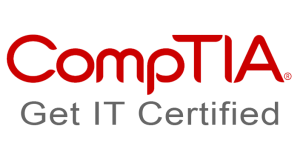


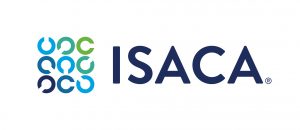
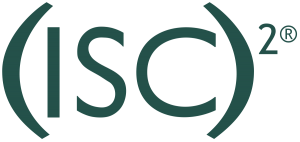




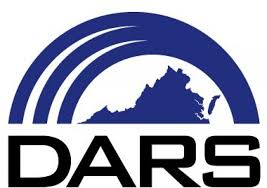










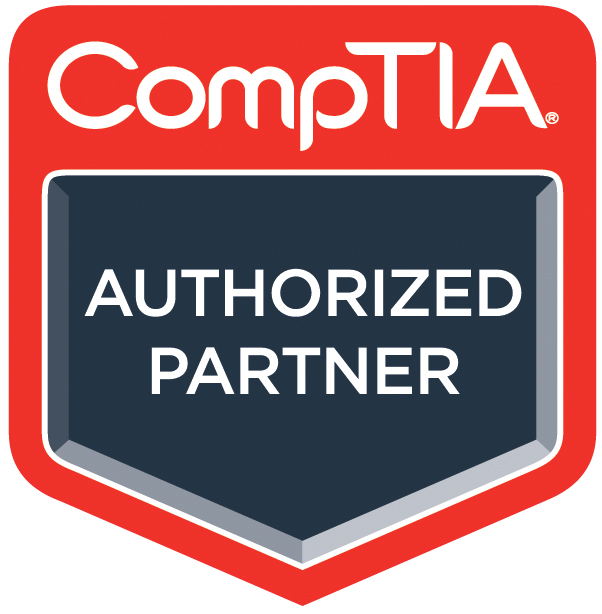


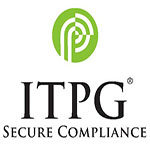





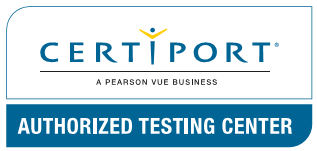



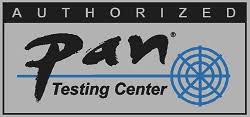
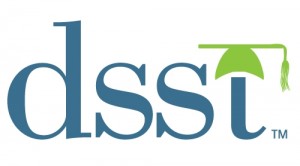
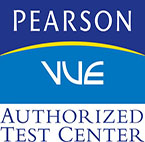


Leave a Reply
You must be logged in to post a comment.